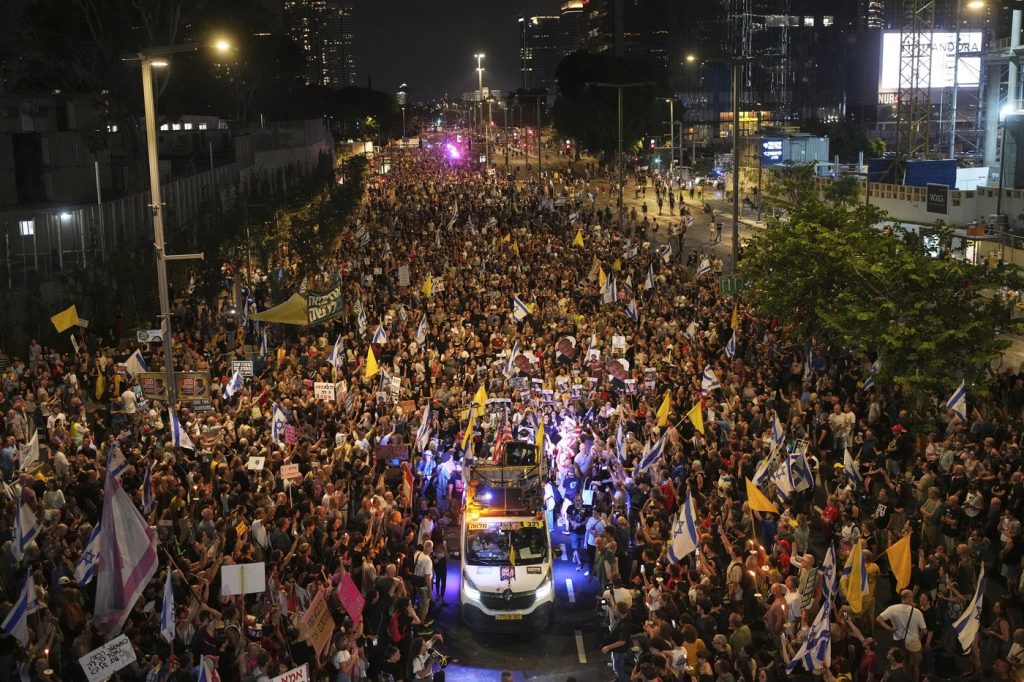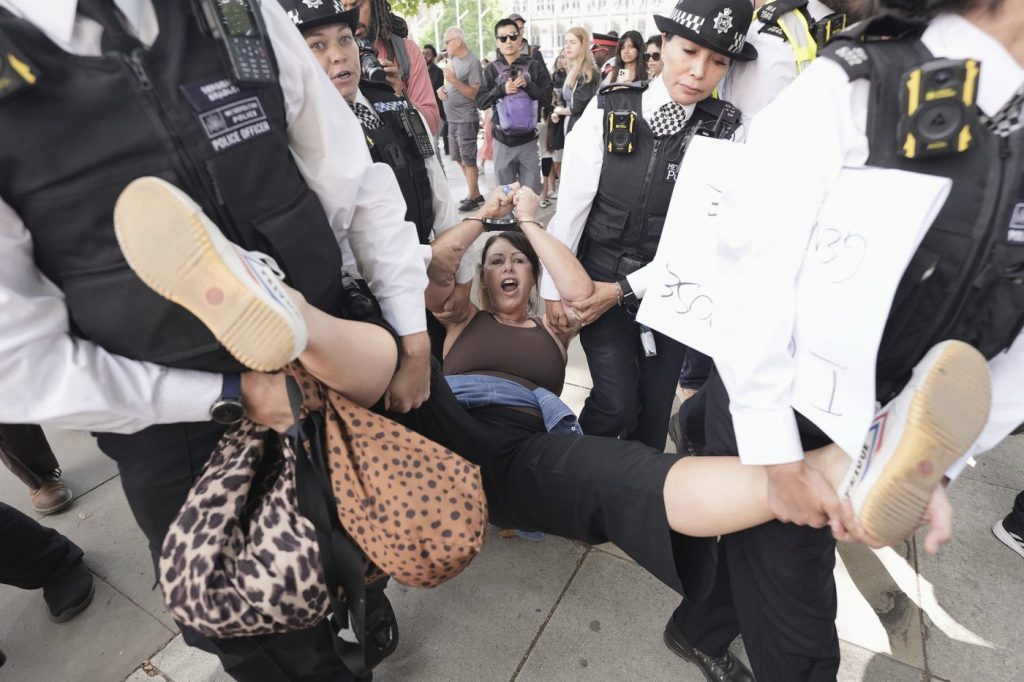International condemnation intensified on Saturday following Israel's decision to undertake a military takeover of Gaza City. Tens of thousands of Israelis participated in massive protests against the government, described by local media as one of the largest anti-government demonstrations in recent months, amidst the ongoing violence of the past 22 months of war.
As political tensions rose, ceasefire efforts began to resurface due to Israel's announcement. U.S. special envoy Steve Witkoff was scheduled to meet with Qatar’s prime minister in Spain to deliberate on a new ceasefire proposal. Egyptian and Qatari mediators are reportedly crafting a framework that would involve the release of all hostages in exchange for the cessation of hostilities and the withdrawal of Israeli forces.
Tragically, health officials reported that 20 Palestinians were shot dead while seeking aid, and 11 adults died from malnutrition-related causes within the past 24 hours. This humanitarian crisis has amplified calls for increased food supplies to reach the beleaguered population in Gaza.
Families of hostages exerted pressure on Israeli Prime Minister Benjamin Netanyahu's government as concerns grew about the fate of the remaining 50 hostages, 20 of whom are believed to be alive and in critical condition. Einav Zangauker, whose son Matan is among those captured, appealed for collective action among Israelis, urging the powerful Histadrut labor union to support efforts to secure the hostages’ release. She declared, “Shut the country down.”
A joint statement from nine nations, including Germany, Britain, France, and Canada, condemned Israel’s military operation, warning that it could exacerbate the already dire humanitarian situation, endanger hostages, and lead to further displacement of civilians. More than 20 other nations, including key mediators Egypt and Qatar, denounced Israel’s actions as a “dangerous and unacceptable escalation.” Russia also asserted that Israel's plans would worsen the already critical conditions in Gaza.
The U.N. Security Council announced an emergency meeting for Sunday in response to the escalating crisis.
Hospitals such as Nasser and Awda reported that Israeli forces killed at least 11 individuals seeking aid in southern and central Gaza. While Israel's military denied responsibility for these incidents, witnesses claimed that Israeli snipers and tanks opened fire on crowds approaching aid distribution points. In another incident near the Zikim crossing, Israeli fire reportedly resulted in at least nine fatalities and more than 200 injuries as people attempted to receive essential supplies.
In Deir al-Balah, residents cheered the arrival of aid through airdrops, although many considered these efforts to be inadequate. Over 100 packages were airdropped, yet there were complaints about the method being dangerous and insufficient. Visuals from the Italian Defense Ministry showcased packages parachuting over Gaza, where people struggled to collect basic necessities like rice and lentils. One man described the chaotic scene, stating, “This way is not for humans, it is for animals.”
Israel has accused Hamas of diverting humanitarian aid, a claim the organization denies. Aid organizations have called for more trucks to be permitted into Gaza to properly distribute essential supplies to the residents who are in urgent need.
With soaring temperatures exceeding 90 degrees Fahrenheit (32 degrees Celsius), families are suffering without adequate shelter, resorting to fanning themselves with cardboard or metal trays and sleeping on the ground outside makeshift tents. Nida Abu Hamad, a displaced resident, expressed her distress about her children's suffering during the sweltering heat.
As of the latest reports, Gaza's Health Ministry revealed that a total of 114 adults have died from malnutrition-related causes since June, alongside 98 children since the outbreak of conflict that began with the Hamas-led attack on Israel on October 7, 2023. The toll from hunger is not included in the overall death count, which reportedly stands at 61,300 Palestinians, emphasizing the scale of the ongoing humanitarian crisis.
While Israel disputes the Palestinian Health Ministry’s figures, it has yet to provide alternative statistics, leaving the situation in Gaza fraught with uncertainty and urgent need for international attention and action.












